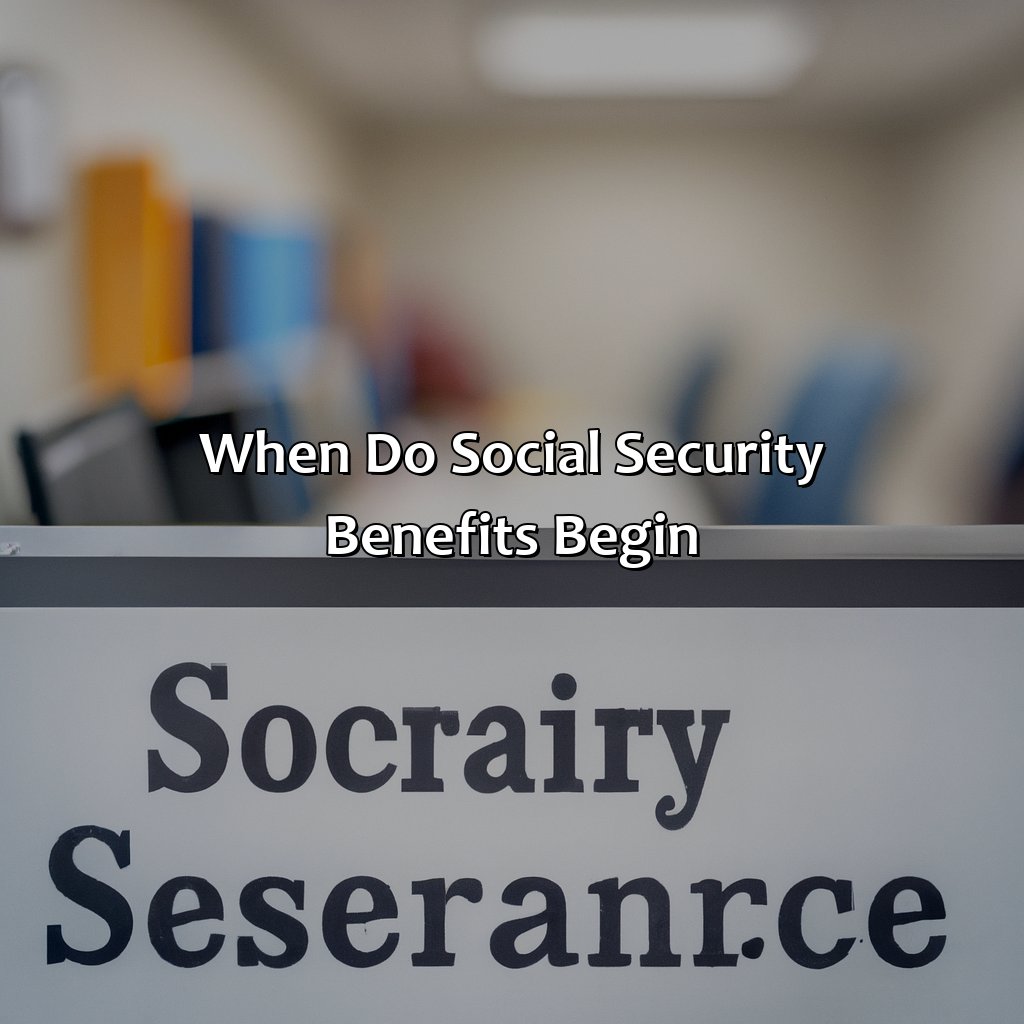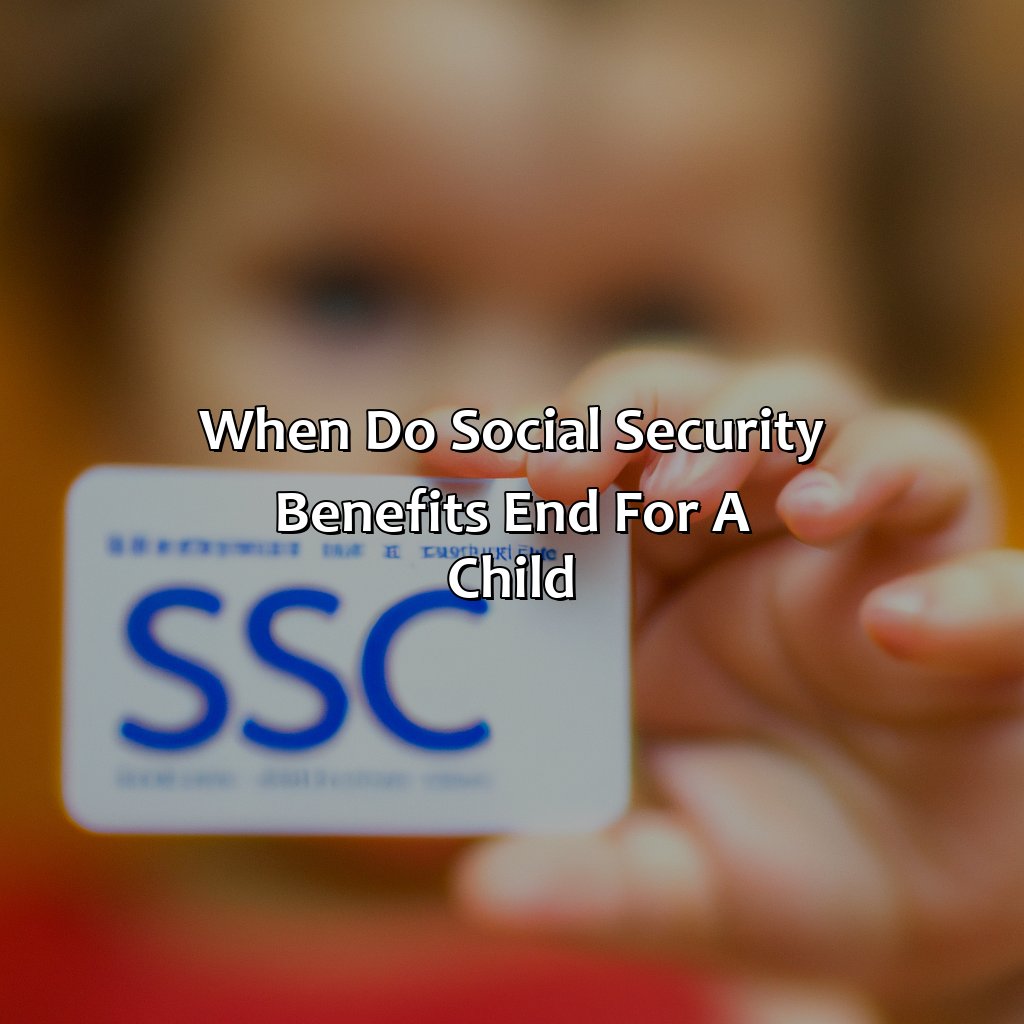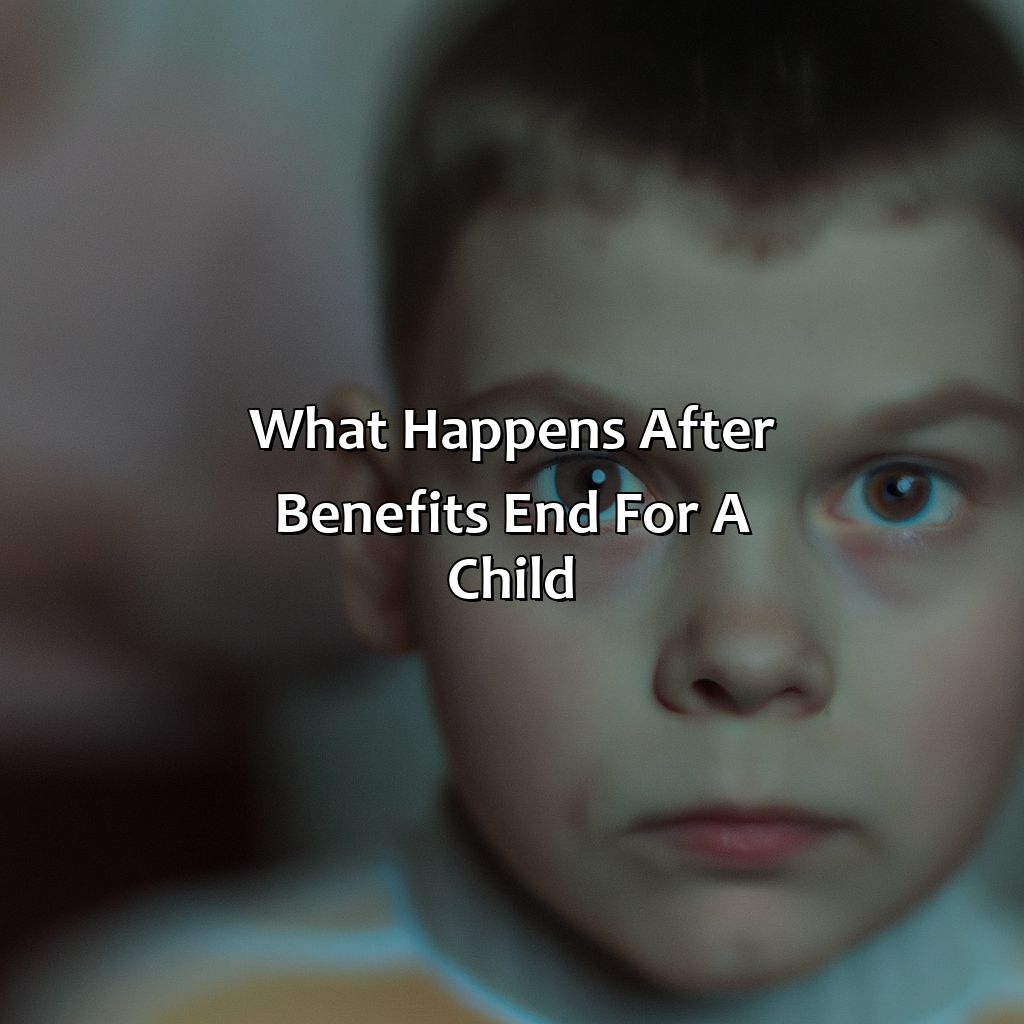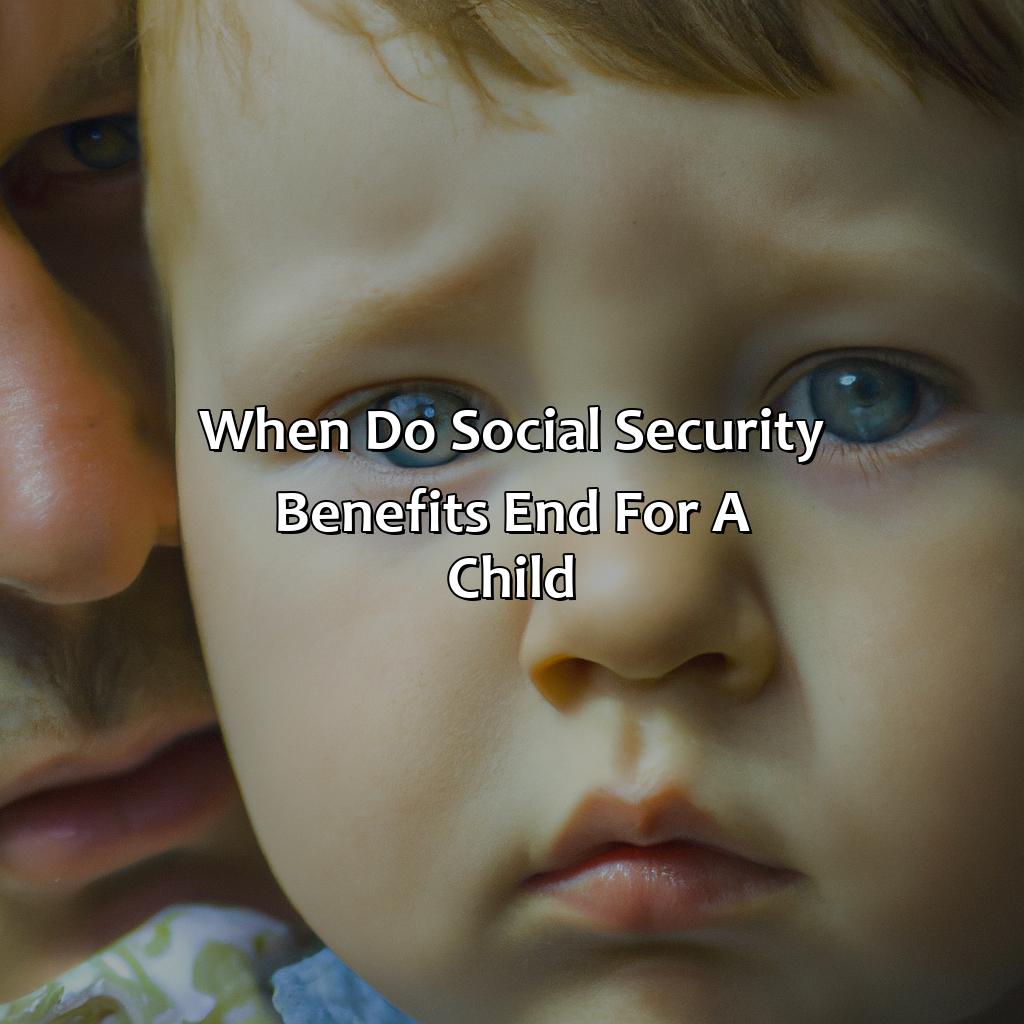When Do Social Security Benefits End For A Child?
Key Takeaway:
- Social Security benefits for children begin when their parent or guardian starts receiving retirement or disability benefits, or when the parent or guardian passes away. Children must meet eligibility criteria and benefits can vary depending on the family’s income and resources.
- Social Security benefits for children usually end when they turn 18, but can continue until age 19 if the child is still in high school full-time. Benefits can also continue indefinitely if the child is disabled or has a qualifying medical condition.
- After Social Security benefits end for a child, there may be a transition to adult benefits depending on the child’s age and situation. Disabled adults may also be eligible for additional support through Supplemental Security Income (SSI).
Are you uncertain when your child’s social security benefits will end? Learn more to ensure your family is adequately prepared. You will gain clarity on when these benefits expire and why it’s important to plan ahead.
When do Social Security Benefits Begin?
To know when social security benefits start for a child, look into eligibility criteria and what benefits are available. These criteria tell us which factors influence the child’s ability to get benefits. Benefits for children can be financial or healthcare support.

Image credits: retiregenz.com by Yuval Washington
Eligibility Criteria for Children
Children are eligible for social security benefits if their parents earn enough work credits or have a disability that qualifies for benefits. The child must be unmarried and under 18 years old, or up to age 19 if still attending high school. Additionally, children with disabilities may continue to receive benefits into adulthood if the disability began before age 22.
It’s worth noting that children of deceased parents may also be eligible for social security survivor benefits. These benefits can continue until the child reaches age 18, or up to age 19 if still attending high school.
A unique detail about eligibility criteria is that adopted children are considered for social security benefits in the same way as biological children, as long as they were legally adopted before turning 16 years old.
According to the Social Security Administration, over 4 million children received benefits in December of 2020 due to a disabled parent or one who had passed away. Even kids can get a taste of the benefits of being a taxpayer with Social Security – it’s like a mini version of adulthood without the stress of finding a job!
Benefits Available for Children
Social Security Benefits that cater to children have unique features and considerations. The following are the benefits available to minors in need.
- Supplemental Security Income (SSI) – A federal program that offers cash assistance to disabled children with a low-income parent. Eligibility is determined by the income of both parents, and the child’s medical diagnosis.
- Auxiliary Benefits – Dependent Children of retired, disabled or deceased workers are eligible. The child must be under 18 years of age or up to 19 if attending school with a high school diploma.
- Survivor Benefits – Includes orphaned children below 18 years old as well as those who have lost their non-working parent due to death or disability. In some instances, grandchildren can qualify if specific criteria are met.
It is important to note that for most benefits available for children, they usually end once the beneficiary reaches age 18. However, this varies depending on the specific type of benefit awarded.
For example, if eligible for SSI because the individual was disabled before reaching adulthood, an evaluation process will be undergone once they turn 18. If successful in such an evaluation, these benefits may continue through adulthood.
Juan was born with a rare genetic illness requiring expensive medication prescribed every month. His parents could not afford his medical bills until they found out about Supplemental Security Income (SSI). Without fail, each month’s SSI checks helped them manage Juan’s medical expenses until he graduated from high school where he would then receive auxiliary benefits throughout college age.
Looks like childhood’s only guaranteed benefits are scraped knees and crippling existential dread.
When do Social Security Benefits End for a Child?
To figure out when Social Security benefits end for a child, look at two factors:
- Age Limits for Child Benefits: These set the cutoff for support.
- Marital and Educational Status of Children Affecting Benefits: This affects the amount of benefit.

Image credits: retiregenz.com by Joel Woodhock
Age Limits for Child Benefits
Child Benefits have an expiration date based on specific age limitations. The Social Security Administration (SSA) specifies the conditions under which dependent children can receive benefits derived from their parents or guardians. These benefits end when a child reaches certain age milestones that the Social Security Administration has outlined in its guidelines.
Once a dependent child reaches adulthood, they are not eligible for Child Benefits unless they meet certain criteria such as having a disability or enrolling in higher education. The age limits for Child Benefits depend on various factors including whether the child is still in high school or disabled.
Additionally, if the parent or guardian of the dependent child receiving benefits passes away, the child’s benefits may continue until they reach their maximum age limit and become ineligible for further payments. Age Limits for Child Benefits can vary based on individual circumstances and SSA guidelines.
It is interesting to note that during President Lyndon B. Johnson’s presidency, Congress passed amendments that changed eligibility requirements for Child Benefits and significantly expanded them to include step-children and grandchildren who were cared for by entitled individuals. These additions helped ensure that more children received financial assistance from the government when needed.
Looks like staying single and skipping college pays off after all, at least when it comes to Social Security benefits for children.
Marital and Educational Status of Children Affecting Benefits
Social Security benefits for children are affected by their marital and educational status. Here’s a detailed breakdown of just how much each factor can affect their benefits.
The table below highlights the impact of marital and educational status on Social Security benefits for children:
| Marital Status | Educational Status | Benefits |
|---|---|---|
| Single or Married | High School graduate or less | Until age 18, or until 19 if still in high school full-time |
| Single or Married | Disabled before age 22 and remains disabled | As long as disability continues |
| Unmarried child of deceased worker/retiree | Any level of education | Until age 18, or until 19 if still in high school full-time, or indefinitely if disabled before age 22 |
It’s essential to note that these are general rules. Different circumstances may grant children additional benefits, such as a child under the age of sixteen who has lost both parents. Such cases will be evaluated individually.
Lastly, a six-year-old boy’s mother passed away from cancer. He has been receiving Social Security survivor benefits since then and will continue to do so until he is eighteen.
When the benefits end, the child becomes an adult and must face the cruel reality of paying bills and taking responsibility for their own life. Good luck!
What Happens After Benefits End for a Child?
Wondering what happens after social security benefits end for a child? This section will help! Its title is “What Happens After Benefits End for a Child?” It has two sub-sections. The first is ‘Transition to Adult Benefits‘. The second is ‘Additional Support for Disabled Adults‘. They provide information on support available. This includes assistance for people transitioning from child to adult benefits and those needing extra help due to disabilities.

Image credits: retiregenz.com by Joel Arnold
Transition to Adult Benefits
When Children reach adulthood, their social security benefits end. This transition marks the beginning of adult benefits. It is crucial to understand how this works as it can impact the young persons’ financial future.
The Social Security Administration has specific criteria that a young adult must meet before qualifying for adult benefits. The criteria are:
- They must be 18 years old and not married, or be 19 years old if they are still in high school.
- Their disability or medical condition must still exist or have gotten worse than it was when they were receiving child’s benefits.
What many people do not realize is that transitioning is not an automatic process; it involves application procedures that need to be followed. The young person will need to apply three months before turning 18 or within seven months of completing high school to avoid any delays.
There was a case where a young lady missed applying for adult benefits and was left without any finances after her child’s benefit stopped because she did not know about the application procedure. Therefore, understanding the requirements and timelines of transitioning is critical in ensuring that individuals receive their rightful benefits continuously.
Because being disabled shouldn’t mean being unsupported, these programs provide a safety net for those in need.
Additional Support for Disabled Adults
Individuals with disabilities can receive supplementary support in different forms. These services provide necessary assistance to help them live a fulfilling life. These resources are essential for people who require additional aid and care as a result of their disabilities.
In addition to the standard support systems, disabled adults can also benefit from personalized programs that cater to their specific needs and abilities. Organizations offer job training, counseling services, funding, and other resources tailored to meet the needs of individuals with disabilities.
These resources are significant in helping disabled adults lead self-sufficient and productive lives. Many beneficiaries miss out on these opportunities due to lack of awareness or accessibility hurdles. It is critical that people with disabilities are fully informed about all available options to make use of available resources effectively.
It is important for disabled adults to stay informed of all available support programs that comply with their specific requirements for maximum social integration, personal development, and overall quality of life. By staying updated about applicable programs designed specifically for individuals with diverse disabilities will enable them to achieve the best outcomes possible.
Five Facts About When Social Security Benefits End for a Child:
Social Security benefits for a child typically end when they turn 18, but may continue until they turn 19 if they are still in high school. (Source: SSA)
Benefits may also continue past age 18 if the child is disabled or if they are the child of a deceased parent. (Source: SSA)
The amount of the benefit is based on the earnings record of the parent or parents who have worked and paid into Social Security. (Source: SSA)
The child’s income and resources can affect their eligibility for benefits. (Source: SSA)
The Social Security Administration will review the child’s eligibility for benefits periodically, usually every 1 to 3 years. (Source: SSA)
FAQs about When Do Social Security Benefits End For A Child?
When do social security benefits end for a child?
Social security benefits for a child typically end when they turn 18 or 19 if they are still in high school. However, the benefits may continue until the age of 22 if the child has a disability.
What if a child is still in school when they turn 18?
If a child is still in high school when they turn 18, their social security benefits will continue until they graduate or until they reach age 19, whichever comes first.
Can a child receive benefits after turning 18?
Yes, a child may continue to receive social security benefits after turning 18 if they have a disability that began before age 22.
What types of benefits can a child receive?
A child may receive benefits through the Social Security Disability Insurance (SSDI) program or the Supplemental Security Income (SSI) program.
Will the child receive the same amount of benefits as their parent?
No, the amount of benefits a child receives will depend on their parent’s earnings history and whether they are receiving SSDI or SSI benefits.
What happens to the child’s benefits if their parent dies?
If a child’s parent dies, they may be eligible for survivor benefits. The amount of benefits will depend on the parent’s earnings history and other factors. The child’s benefits may also continue if they are receiving disability benefits.
 Checkout this IRS Loophole
Checkout this IRS Loophole 
